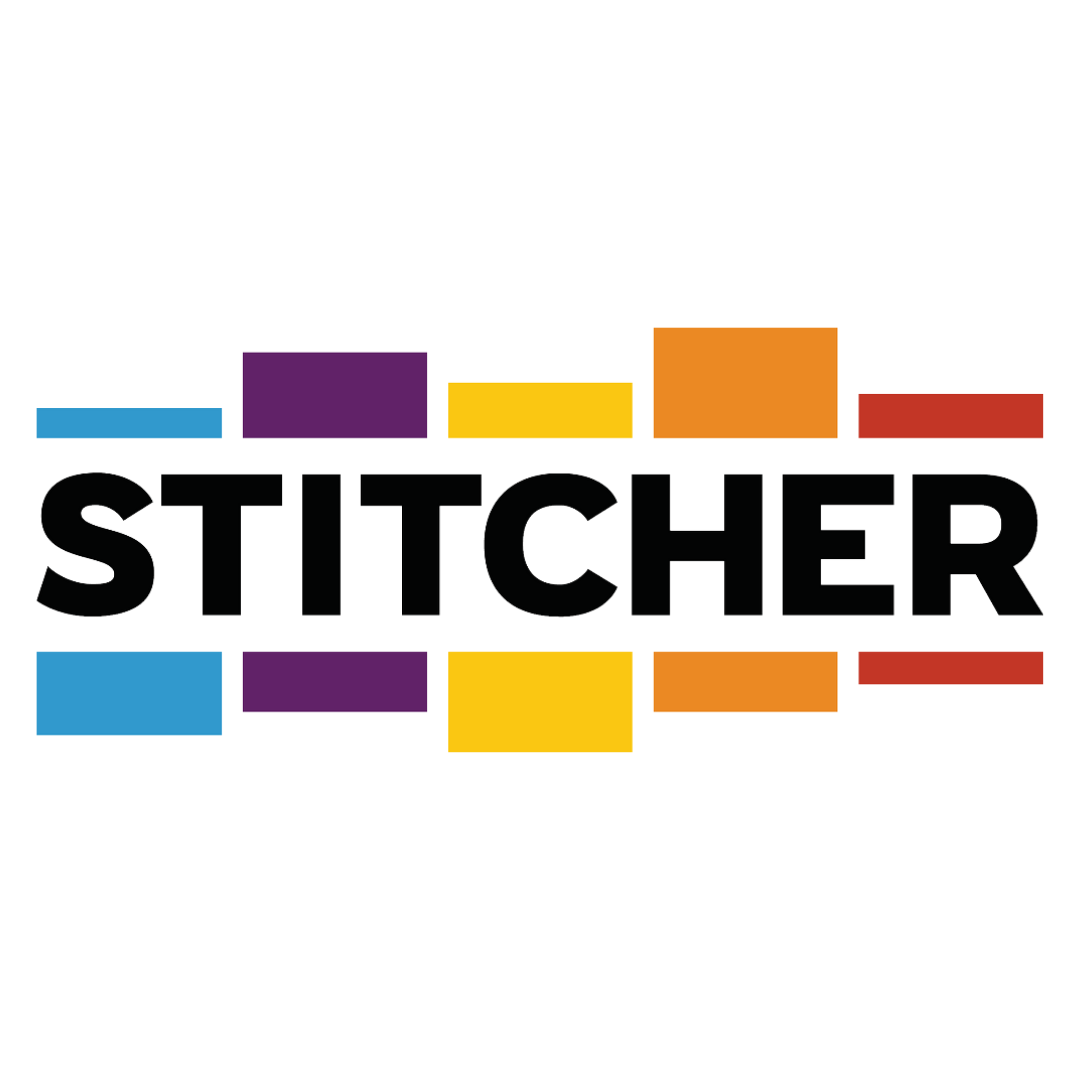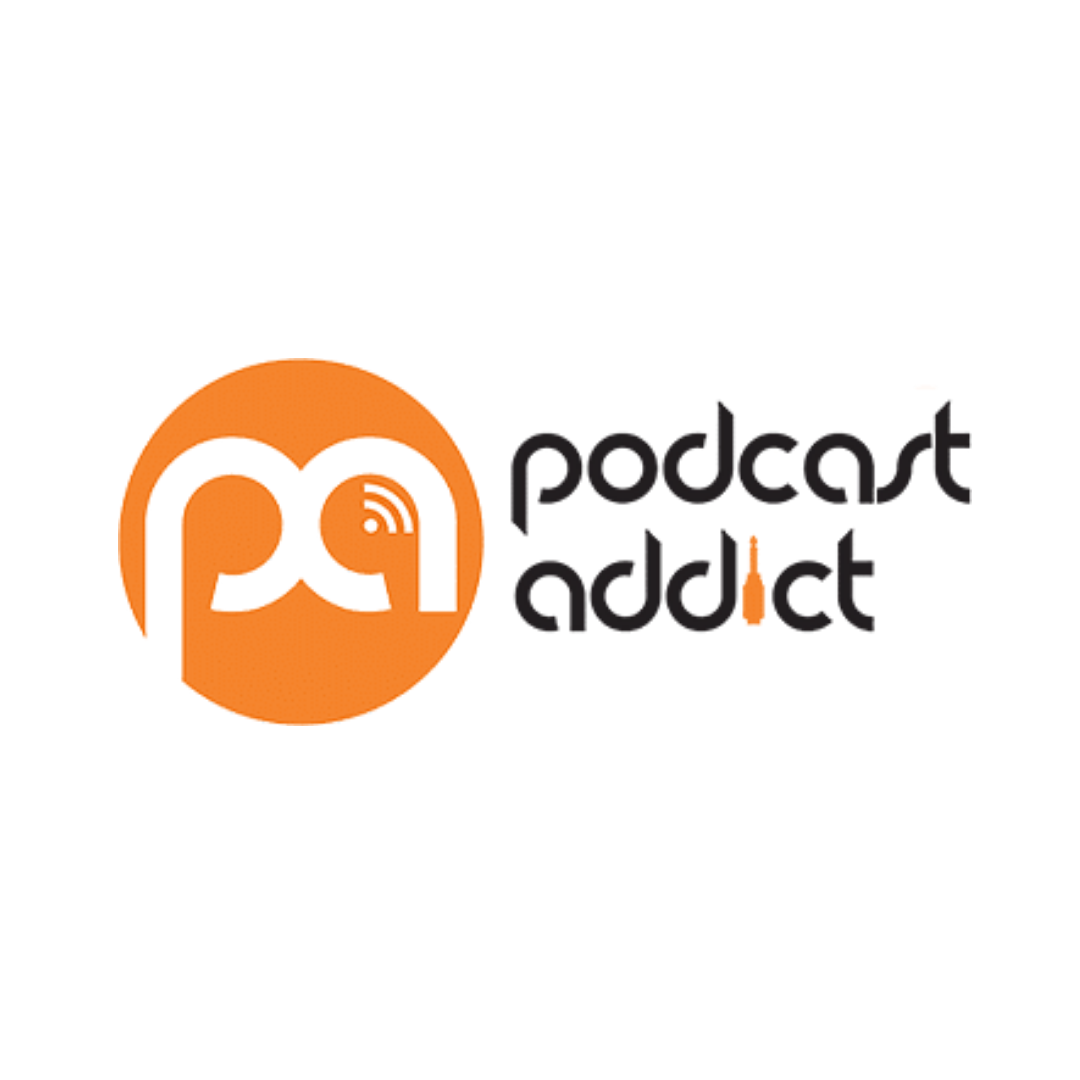Brand & Intellectual Property for Startups Vox Pops
Join Our Newsletter
Introduction
In this episode, Shireen interviews a series of business owners to produce a Vox Pop about what they did when they first started out to create their brands.
Show Notes
In this episode, Shireen interviews a series of business owners to produce a Vox Pop about what they did when they first started out to create their brands. How did they deal with the IP side of things?
In brief this episode covers:
- Brand Naming
- Brand journey
- What does brand mean?
- Insights on choosing the right help when turning ideas into a brand
- Protecting the brand name through intellectual property
- How to attract the right clients and decide the type of clients to target
- Accessing the right help in turning ideas into a business and brand
- How does intellectual property interplay with the branding work they’re doing for their clients
Vox pop guests:
- David Horne
- The owner of Add Then Multiply a consulting business that advises entrepreneurs on how to scale up using their face methodology
- Paul Griffiths
- An energetic, forward-thinking business leader who is focused on helping people develop and achieve their potential. The owner of Aspire Active Education Group Ltd.
- Gareth Bain
- Founder of Got Legs Digital a growth marketing agency helping small & medium-sized businesses in the UK to acquire engaged customers and grow.
- Pam Tironi
- The managing director and CEO of The Pizza Room and The Coffee Room.
- Gerri McMahon
- The founder of The Academy of Light & Soul Discovery Coaching, Gerri is a world class coach who has worked with thousands of people worldwide.
- Jan Mikulin
- The founder of INSIDEout, a training and development company, focussed on fostering collaborative cultures in the creative and professional services industries
Valuable Resources:
Register to attend the Brand Tuned book launch on 28 September 2021
Brand Tuned Accelerator
www.brandtuned.com
Transcript
Shireen Smith: In this episode, I interviewed a series of business owners to produce a voxpop about what they did when they first started out to create their brands, how did they deal with the IP side of things, there's more information about the various businesses in the show notes. So, my first guest was David Horne, who advises businesses that want to achieve exponential growth. His other business Funding Focus supports businesses to raise capital, I asked David, what brand means to him, and to what extent he has worked out his own brand. This is what he had to say.
David Horne: When a brand ultimately is everything to do with a business and how it represents itself to its customers. So, it's much, much more than a name and a logo. Those are just an outward manifestations, you know, it's a brand value in the broader brand thing. Go from anything like, you know, how do people answer the phone? How do you how do you respond to people in emails? What is your culture? Like? What is what is the what is, you know, I saw someone recently saying that a brand is kind of like an iceberg. And the logo is the tip of the iceberg. But so much of the value of the brand is what you what you don't even see because it lies below the water. And I thought that was a good analogy.
Shireen Smith: I then asked Paul Griffiths, co-founder of the Aspire Active Education Group, which has been going for 15 years also to explain his journey in terms of sorting out his company's brand.
Paul Griffiths: Yeah, so it's a journey that's really, really changed over time. I think I think initially, brand has always been really important to us. To me, as a leader, I've always understood the importance of having a strong brand and having an identity, both initially definitely as an organization, but then also, you know, more from an individual perspective as well. Because I think, you know, we need that unique identity, our marketplaces is new, it's the sector has only really been around for 20 years. So, you know, been going for 16 of eight years, it's changed a lot, there's a lot more out there in terms of competition. So, the importance of having a strong brand, having a professional brand, given the fact that we're working with children, and obviously in the education sector is very, very important to have a brand that is well respected by the customer base. So, the transition really over those years has been one of really kind of, I suppose from a leadership perspective, making sure that our team and our customers and the partners that we work with our stakeholders understand the importance of not only our brand but of their brands, as well. Yeah, we do sorry. So, the official name of our organization was Aspire Sports Health and Fitness Limited and as a first limited company that we operated through, and that that's changed, we now have a group structure but Aspire is in pretty much everything. So as far as active education is the group company. Within that we have a Aspire Sports Fitness which is the direct delivery arm Aspire Training Solutions, which is our training arm and then Aspire Active Partnerships, which is the Partner Network arm so for us, it's always important to have a spire as the kind of the brand name if you like, and it's something that we understand that needs protecting and using in the right way. And we have a similar approach to shooting with some of our programs. So, we have a program for example that we designed about 10 years ago now called Mass on the Move. So now it's important that we are designed for programs with other subjects so English on the move, for example. So, we've always understood the importance of having something that's aligned with a Aspire and our brand and similar programs that we create so and the final one is our school holiday. So, Aspire Active Camps is our school holiday branding as well. So yeah, aspire really does kind of filter through the organizations and the different arms of the business that we have.
Shireen Smith: This is a really good approach to brand naming, because it follows the virgin approach, a single brand name, combined with descriptors, which I approve of for small businesses, rather than having lots of different names. So, I was curious whether they had any help with the name and brand. And apparently, they did it themselves without help. However, they are keen on learning. So have obviously benefited from that learning in knowing how to do the right thing.
Paul Griffiths: Know what really It came from myself and James initially, with regards to the name of the brand, and then the, I think how it flowed through the brand, I think we had a lot of really positive feedback in the early days from yet really like the name of your company, what it stands for. And obviously, we're inspiring children and children aspiring to be not just children that everyone we work with is aspiring to be better versions of themselves if you like going forward. So, it was something that really just stuck. And whenever we have meetings, internal meetings, and we focus on new program development, or we look at company structure, it kind of just comes naturally, I guess that you know, that really thought about it, but the whole team really does buy into the who we are, what we do what we stand for, and it kind of just flows nicely through the company. the only case advice that we have had in the past has come from, like an IP lawyer as such, so to protect some of our brands. And aside from that, it's really just picked up myself and James, really big on learning. We're constantly learning whether it's through courses, wherever it's reading books, listening to podcasts. But yeah, especially going back to when we first started the business. There were some books that we read, and yeah, we didn't have any business experience. But books we read, and people we spoke to that may have run other businesses. But you know, we got talking about branding, but we've never really engaged with a brand expert as such.
Shireen Smith: What actually made you decide you needed to go to IP lawyers?
Paul Griffiths: Yeah, exactly that it was the it was a moment where we realized that somebody had copied, produce, copied, and pasted the whole website, and we thought this clearly not. And so, we think we'd already been introduced to the IP lawyer at the time is kind of like just an initial introduction. And you need to think about this and think about that. And like most people are like small business owners, I know, it's kind of like, well, okay, well, we'll get in touch, we'll have a meeting at some point, it doesn't happen. And then something happens, and you need to actually have a conversation and you wish it had had that conversation months before. But yeah, that was the initial prompt. You know, even over the pandemic, in the first lockdown in the summer, we had a couple of instances where resources that were like, work so hard on producing and putting content out there, we had a couple of companies just crop up on social media and literally copy what we did. So, you know, there's that initial anger, I guess, of will, you know, how dare your kind of completely rip off what we're doing. But then there's reflection and kind of when she can control that, that that champion your head, that's telling you to react straight away with an angry response? Well, actually, first of all, you must be doing something right, because someone wants to copy. So, but then there's the kind of moment to pause and think, right, we've been in this situation before. We speak to our IP lawyer, use a template that we've got or a conversation or make a phone call, send some correspondence, and it should be dealt with and touch word every issue we've had with somebody that has done something and breached our IP is being resolved very quickly, because of the guidance and advice that we've had from IP lawyer. So yeah.
Shireen Smith: When were you aware that there is such a thing as IP.
Paul Griffiths: I think it's probably going back actually to a couple of business courses that myself and my business partner did. Probably back in the recession, really randomly recession was simulated injections locally, with small business support and various courses that we went on. And I remember one of the modules was around IP and the importance of, you know, protecting your intellectual property. So that was the probably the first instance of, Okay, this is something that as a small business, there's only a couple of years, you know, we're not as big, we don't employ as many people, our turnover isn't as big as some of the other companies in the room. So, you know, it's probably something on our list that we need to look at. But it's probably not something we need to act on straight away. You know, looking back, that's, you know, if we were to start up again, then 100%, that it's one thing that we would get them pretty much straight away, and engage with somebody that knows what they're talking about. That's, that's been there, done it got the T-shirt and, and can help protect you because you can, if we hadn't have protected, our brand is searching and the content we're producing, you know, how frustrating it would have been to have somebody copy content, copy program, copy resources, and literally be stuck and not being able to do anything. It could be or it could be disastrous, especially if you're a startup and you look at maybe limited funds and unlimited cash flow. And it is, in my opinion, I think a lot of small businesses and knowing the network of organizations that we have, is probably something that is on the bottom of a lot of people's lists, but it's something that needs to really be at the top of it. Because if you don't protect it, your business could be in serious jeopardy pretty quickly.
Shireen Smith: Gareth Bain, of Got Legs Digital, had just set up his business. He has a branding background with an honors degree and brand and strategic leadership. I wanted to know, Gareth's approach to supporting his clients to choose better names for their brand.
Gareth Bain: Yeah, so in terms of helping a business, choose a business name. And it's something that we can do, we do have clients that have names where we recommend, you know, name change, either for SEO purposes or for just being Top of Mind and remembering. In terms of the actual brand itself, we can help with that the colors, the strategy, the messaging, and taking them from kind of cradle to grave, in a kind of holistic approach. I think a lot of businesses when they think brand, as I said, I think it's my color and my typeface. But it's actually it's your employees. It's how you answer the phone. A brand is a promise. And this is what we try and educate businesses on and saying it's not only your logo and your color, but it's the experience that you give to customers. Because you might want to portray a particular image of being amazing or this net, but you know, what your Trustpilot or your Google reviews don't actually, you know, support that because so many people have gone and said they've had a bad service from you. So, a brand is bringing that all together. And we do that for customers.
Shireen Smith: I asked him how intellectual property interplays with the branding work they're doing for their clients?
Gareth Bain: Yeah, I think whenever you create a brand, you're creating something that's new, it's your intellectual property, it's your IP that you want to promote. I think basing something on your intellectual property is very hard for your competitors to compete to replicate. And that's definitely where companies should focus their main attention on. That's why I'm all about focusing on brand rather than products. It's very easy for a new company to come into the market and go Okay, well, I'm going to start selling a particular product. Whereas if you've built a brand, and behind that brand is intellectual IP, and you've got a specific USP based around it, it's much harder for a competitor to come in there and take your market share. Because you're competing on a much higher level as opposed to a product level. It's more of an asset level. And by building a brand and an IP into your, your actual business, you're creating that value, which is one day sellable. When you do want to finally exit your business. I have been in a situation before where we spent two or three hours of great brainstorming come up with a name of an organization or a product and we go right organs hurt and then we find out that it's actually either copywritten or the website really addressed. It really exists. And all that work was for nothing. So, it's very important to have that copy written. Because the last thing you want is someone stealing your idea your brand name and leveraging that in another country, diluting your equity, dissolving your brand ethos somewhere else. Right putting an IP on to the brand is very important.
Shireen Smith: Next, I spoke with Pam Tironi, the Managing Director and CEO at The Pizza Room, she has been in the industry for 12 years, and shared her insights on choosing the right help when turning ideas into a brand is.
Pam Tironi: Very difficult for me as non-expert to know what is available, what is right what is wrong. So having that confidence that the person you're talking to our comprehensive that they know what they're doing, and they are trustworthy, you know that they're not just throwing in a few images and job done, but they're really caring, that would have made a difference. And in this world, we struggle finding it, I'm still unsure if the agency we are using is the best or if there was something else around and sometimes more difficult to understand what the best is because we are not looking at you know, we're not a multinational as yet. With small business and as a small business, what we need is to be simple, straightforward, and to grow.
Shireen Smith: Did you think about intellectual property at all that you were effectively creating an intellectual property when you develop the name?
Pam Tironi: Yeah, we've copyrighted two brands two logos, actually not the names but the logos of the company to protect our intellectual property. When it is not easy because our names are very common. So, the coffee room the pizza room, generic names that we did copyright them to protect we had already people copying us. So, we had a restaurant not far from us that has used our name. And we have a coffee shop that is used this very similar name at too little distance from us. So, I've used the copyright to send a cease and desist.
Shireen Smith: Pam discussed a common problem businesses face around employment in terms of finding it difficult to identify the right people to help with the visual identity.
Pam Tironi: Yeah, that was also very hard to do. So, we have employed the person first, which was supposed to be a graphic designer with marketing experience but ended up being more an IT person. So, we moved that person into the web designer and what was the web development which was his actual main field. Then we got another individual which was apparently again, expert in marketing and media but it ended up being very expert in social media, not in action. The marketing and the whole concept but helped anyway to direct to this branding, search. And I am at the point now where I know I need to hire someone which is very competent in marketing. And I'm struggling and really struggling because you know, what you see is not what you get, or what they tell you is not what you get. So, we would love to be able to recruit the right persons to be able to identify someone that understands and has the neck is able to bring us to the next level.
Shireen Smith: Next, I spoke with Gerri McMahon, the founder of the Academy of Light & Soul Discovery Coaching on how they came up with their brand name.
Gerri McMahon: It's about discovering yourself, you know, and I've been really inspired by one of my dead, but you know, shiatsu teachers whose books I used to devour call, she's Sudo Meza Naga, who's Japanese and one of the things that he wrote with, which always had an impact on it was on his deathbed, he said, I really wish I'd worked more with people's souls, you know, rather than their bodies or their minds or emotions, and that just had such an impact on me. So yeah, that's how we came up with a soul sell discovery Academy.
Shireen Smith: Gerri shared some interesting insights on how she attracts the right clients and decides on the type of clients to target.
Gerri McMahon: Weirdly enough, just recently, and last kind of we could do, I'm sticking to a schedule of at least three social posts a day, and I'm trying to go live on Facebook as often as I can. And to be honest, I just use life to inspire me, you know, I feel really confident that the moment that I have enough knowledge, and I have enough wisdom, you know, maybe Yeah, there's a business side that I need to focus on. Because I ran away from sales and marketing things for many years. It's a lot of healers, and coaches do. And but I just use life and weirdly enough, you know, my problems and the conflicts that I get over, and those of my clients who give me permission to just show people that, you know, it's okay, we are actually we're birthing through a very tight, difficult birth canal at the moment. But my God, the light on the other side of this is powerful, and incredible.
Shireen Smith: Finally, it was in Jan Mikulin's turn to share his story about his brand consulting business, supporting his DJing career. What did he want to achieve for his business?
Jan Mikulin: I really want to like dig into the reasons why we do what we do. That's, that's, that's kind of been my driving force. Yeah, it's, its helping people understand what the needs are behind the activities that we do. So, I have at this point of view that the needs beliefs, and values that we have determined our behavior. And too many businesses are focusing on the behavior, and like the outside, external manifestation of what it is that we do really need to be spending a bit more time looking inside out, like, what is what is the values, the beliefs, and the needs that are driving that and creating a space for us to actually look at that.
Shireen Smith: So, what would you be studying for that? What is it decision science?
Jan Mikulin: It’s a little bit of a combination of psychosynthesis, psychoanalysis, behavioral science, behavioral economics? and a whole host of other things? It's essentially really looking at what are the needs, that we need to meet it right now, in this moment, and actually bringing that into an awareness of Okay, what need Am I fulfilling? Why am I looking to fulfill it in this way, and start to really reconnect with our authentic human drivers? Essentially.
Shireen Smith: Did you feel you had access to the right help to turn your ideas into a business and brand?
Jan Mikulin: I think had you asked me that six months ago, I said, Yeah, no problem. I've got it all sorted. And I think as I'm starting to really dig in, in a much deeper level as to what it is that I want to do, why I want to do it, and how I want to do it. I'm realizing that I was kidding myself, which is a pattern that I've experienced. Because, you know, one of my needs is to feel as though I can do it on my own. But also, another one of my needs is to be supported to do things. So, it's kind of playing in that tension of giving myself autonomy, but also a sense of support and valuable expertise.
Shireen Smith: Lastly, what are the unknowns you feel you would have benefited from having more help with?
Jan Mikulin: Yeah, I think it's around finding trusted partners with whom I can bounce ideas off and have experience that I both acknowledge and respect so that I don't see it as an attack on my ideas, more of a support and a build on my ideas. I think there's something very interesting in the way that we perceive and react to people's input. And I'm becoming more sensitive and aware of finding partners with whom that chemistry is such and the way that they communicate, and I communicate with them creates a collaborative environment and relationship rather than a conflicting environment or relationship.
Shireen Smith: So that's the end of the series of short interviews. Go to the show notes if you want to reach any of the businesses I've been talking with. Bye for now.









